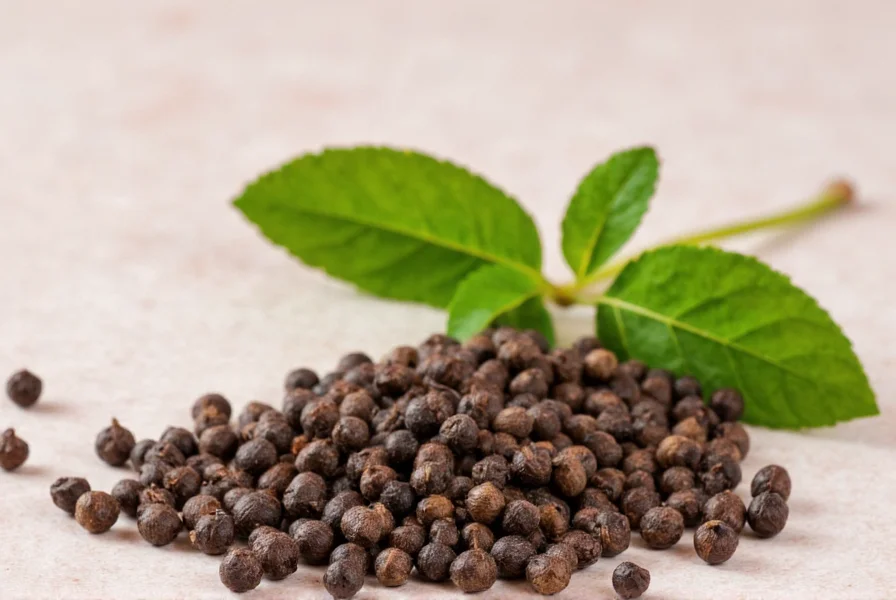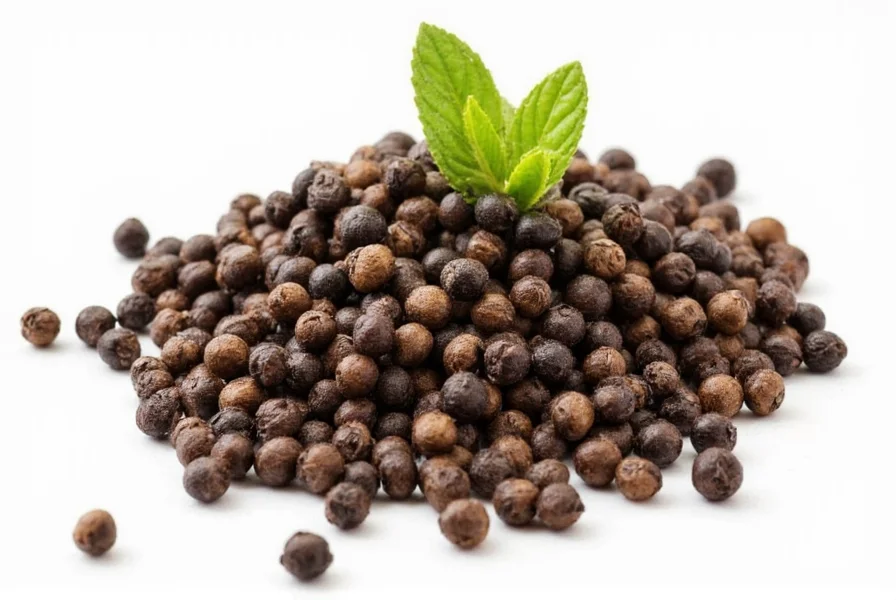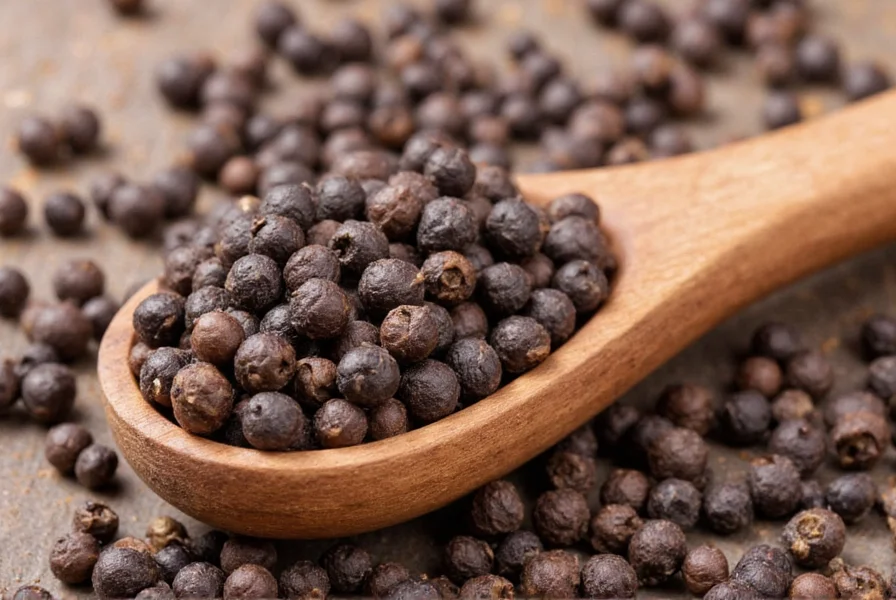Black pepper, scientifically known as Piper nigrum, has been valued for both culinary and medicinal purposes for thousands of years. This common kitchen spice contains a powerful bioactive compound called piperine that gives black pepper its distinctive pungency and numerous health properties. While it won't cure diseases on its own, incorporating black pepper into your regular diet offers several evidence-based health advantages that make it a valuable addition to a balanced eating pattern.
The Science Behind Black Pepper's Health Properties
At the heart of black pepper's health benefits lies piperine, which constitutes approximately 4-6% of black pepper by weight. This alkaloid compound has been the subject of numerous scientific studies investigating its biological effects. Research published in the Journal of Agricultural and Food Chemistry demonstrates that piperine possesses significant antioxidant capacity, helping to neutralize harmful free radicals in the body.
One of black pepper's most well-documented benefits is its ability to enhance the bioavailability of other nutrients and compounds. A landmark study in Planta Medica found that just 20mg of piperine increased curcumin absorption from turmeric by a remarkable 2,000%. This synergistic effect makes black pepper particularly valuable when consumed with other health-promoting foods.
| Nutritional Profile of Black Pepper (Per 1 tsp/2.3g) | Amount | Percent Daily Value |
|---|---|---|
| Calories | 9 | <1% |
| Dietary Fiber | 0.5g | 2% |
| Manganese | 0.1mg | 4% |
| Iron | 0.2mg | 1% |
| Vitamin K | 2.5mcg | 2% |
Evidence-Based Health Benefits of Black Pepper
Enhanced Nutrient Absorption
Black pepper's most scientifically supported benefit is its ability to increase the absorption of various nutrients and phytochemicals. Beyond its famous synergy with turmeric, research indicates piperine may improve the bioavailability of:
- Resveratrol from grapes and berries
- Beta-carotene from vegetables
- Coenzyme Q10 supplements
- Green tea catechins
This makes black pepper particularly valuable when seasoning vegetable dishes or taking certain supplements.
Natural Anti-Inflammatory Properties
Chronic inflammation underlies many modern diseases. A 2013 study in Phytotherapy Research demonstrated that piperine significantly reduced inflammatory markers in animal models. While more human studies are needed, the anti-inflammatory effects observed in laboratory research suggest black pepper may help mitigate low-grade inflammation when consumed regularly as part of a healthy diet.

Digestive Health Support
Traditional medicine systems have long used black pepper to support digestion. Modern research provides some validation for this practice. Studies show piperine stimulates the production of hydrochloric acid in the stomach, which aids in protein digestion. Additionally, black pepper may help reduce intestinal gas and bloating for some individuals when consumed in moderate amounts.
Potential Metabolic Benefits
Emerging research suggests black pepper may offer metabolic advantages. A 2012 study in BioFactors indicated that piperine might help regulate blood sugar levels and improve insulin sensitivity in animal models. While human research is still limited, these preliminary findings suggest potential benefits for metabolic health when black pepper is included as part of a balanced diet.
Practical Considerations for Black Pepper Consumption
Understanding how much black pepper is good for you and how to maximize black pepper health benefits is essential for reaping its advantages without potential downsides.
Recommended Daily Amount
For general health benefits, culinary use of black pepper (approximately 1/4 to 1/2 teaspoon daily) is considered safe and beneficial for most adults. This amount provides enough piperine to enhance nutrient absorption without causing digestive discomfort. Those specifically seeking enhanced curcumin absorption might use slightly more when consuming turmeric-containing dishes.
Maximizing Benefits Through Food Pairing
To maximize the health benefits of black pepper, consider these evidence-based pairing strategies:
- Turmeric dishes: Add black pepper to golden milk, curries, or roasted vegetables with turmeric
- Vegetable preparations: Sprinkle on cooked vegetables to enhance absorption of fat-soluble vitamins
- Salad dressings: Include in vinaigrettes to boost carotenoid absorption from leafy greens
- Protein dishes: Use when seasoning meats or legumes to aid protein digestion
Potential Concerns and Limitations
While black pepper offers health benefits, it's important to maintain realistic expectations about what black pepper can and cannot do for your health.
Not a Miracle Cure
Despite some exaggerated claims online, black pepper is not a cure-all solution. Its benefits are modest and work best as part of an overall healthy lifestyle. The phrase is black pepper healthy for weight loss often appears in searches, but research doesn't support black pepper as a significant weight loss aid on its own.
Possible Drug Interactions
Piperine may interact with certain medications by affecting how the body metabolizes them. People taking the following medications should consult their healthcare provider about black pepper consumption:
- Blood thinners like warfarin
- Antidepressants
- Seizure medications
- Chemotherapy drugs
Digestive Sensitivity
Some individuals with sensitive digestive systems may experience heartburn or stomach upset when consuming larger amounts of black pepper. Those with conditions like GERD or ulcers might need to moderate their intake.

Conclusion: Black Pepper as Part of a Balanced Diet
The question is black pepper good for you receives a qualified yes from scientific evidence. Black pepper offers genuine health benefits through its piperine content, particularly in enhancing nutrient absorption and providing antioxidant support. However, these benefits are best realized when black pepper is used as a regular component of a varied, whole-foods diet rather than as a standalone remedy.
For most people, incorporating black pepper into daily cooking represents a simple, safe way to potentially enhance the nutritional value of meals. The key is consistent, moderate use rather than occasional large doses. When combined with other health-promoting dietary practices, black pepper can contribute to overall wellness as part of what nutrition experts call a "food as medicine" approach.
Does black pepper really help with nutrient absorption?
Yes, scientific research confirms that piperine, the active compound in black pepper, significantly enhances the absorption of certain nutrients. Most notably, it increases curcumin absorption from turmeric by up to 2,000%. It also improves the bioavailability of other compounds like resveratrol, beta-carotene, and coenzyme Q10 when consumed together.
How much black pepper should I consume daily for health benefits?
For general health benefits, culinary use of 1/4 to 1/2 teaspoon of black pepper daily is considered safe and beneficial for most adults. This amount provides enough piperine to enhance nutrient absorption without causing digestive discomfort. Those specifically seeking enhanced curcumin absorption might use slightly more when consuming turmeric-containing dishes.
Can black pepper help with weight loss?
Black pepper alone is not an effective weight loss solution. While some preliminary research suggests piperine might have modest metabolic benefits, there's no strong evidence that black pepper significantly contributes to weight loss. Any weight management benefits would come from incorporating black pepper as part of an overall healthy diet and lifestyle, not from black pepper itself.
Are there any risks to consuming too much black pepper?
Consuming extremely large amounts of black pepper (far beyond normal culinary use) could potentially cause digestive irritation, heartburn, or interact with certain medications. For most people, normal cooking amounts are safe, but those with sensitive digestive systems or taking specific medications should consult their healthcare provider about appropriate consumption levels.
Is black pepper better than white pepper for health benefits?
Black pepper generally offers more health benefits than white pepper because it retains the outer fruit layer where most piperine is concentrated. White pepper is produced by removing this layer, resulting in lower piperine content. Black pepper also contains more antioxidants and fiber compared to white pepper, making it the preferable choice for maximizing potential health benefits.











 浙公网安备
33010002000092号
浙公网安备
33010002000092号 浙B2-20120091-4
浙B2-20120091-4